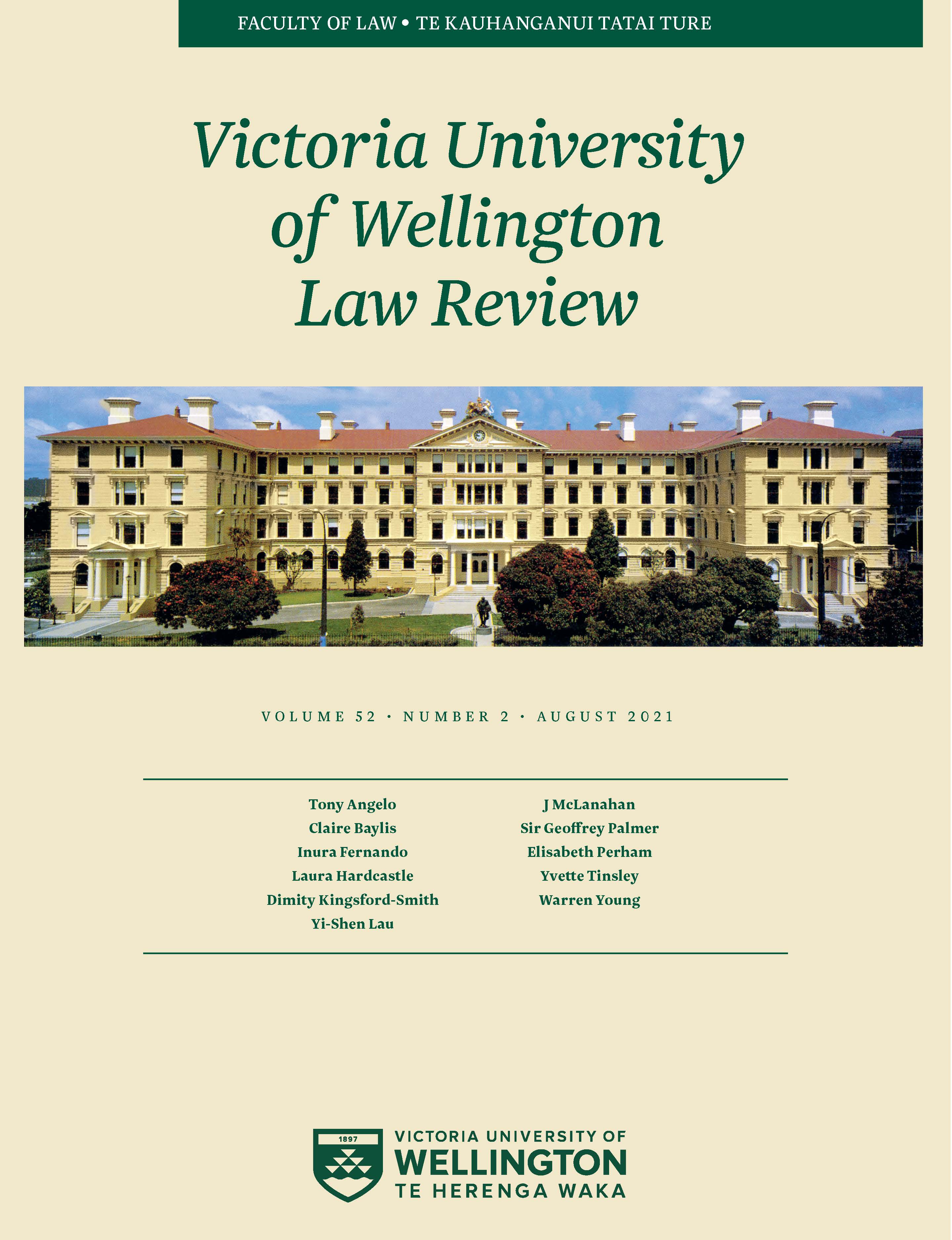Rethinking Public Law in a Time of Democratic Decline
DOI:
https://doi.org/10.26686/vuwlr.v52i2.7127Abstract
The thirteen separate segments of this article are designed to explore the consequences for New Zealand public law of the global decline of democracy in many parts of the world, although not in New Zealand. The trend towards autocracy is evident in many countries and has been increasing. There was a time when democracy was thought to be inevitable, but that time has passed. Since New Zealand is a small and open society, democratic rot and decline could set in, as it has in other democracies. In order to combat these tendencies, it is necessary to think about the implications of these developments for teaching public law and for the need to bolster education in citizenship, so people can better understand the advantages of democracy, participate in it and feel a commitment to it. Many New Zealanders not born here may not understand the culture, may not have English as their first language and may be discouraged from engagement. New Zealand is increasingly diverse.
The article explores the recent history of the United States and to a lesser extent, the United Kingdom, to discern the tendencies at work in those democracies. Returning to the fundamental elements of public law, it is suggested that the analysis begins with the nature and character of the state, followed by international law. Then it is argued it is necessary in the New Zealand context to examine the situation of Māori, Te Tiriti o Waitangi, the activities of the settler governments and the remaining consequences of colonisation. There appears at this time to be an opportunity to more significantly recognise indigenous Māori culture. From there, an examination of some important principles of political philosophy is provided. This leads to a summary of the main types of government that are available for any state. Then are set out the main political ideologies that often impel political actors. The changes in democratic practice that have resulted from the digital revolution are then examined with the effects upon political parties and how they have changed New Zealand. The manner in which public opinion can be manipulated and the need to become literate in politics and political practice is emphasised. The article concludes with a discussion of public law as an autonomous discipline and a final conclusion about what all this means for New Zealand. In the mind of the author, after a long career in public law and politics, these separate elements combine into a message about the need for democratic refurbishment and future vigilance in New Zealand.
Downloads
Downloads
Published
How to Cite
Issue
Section
License
Authors retain copyright in their work published in the Victoria University of Wellington Law Review.


